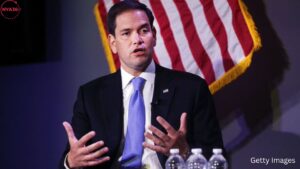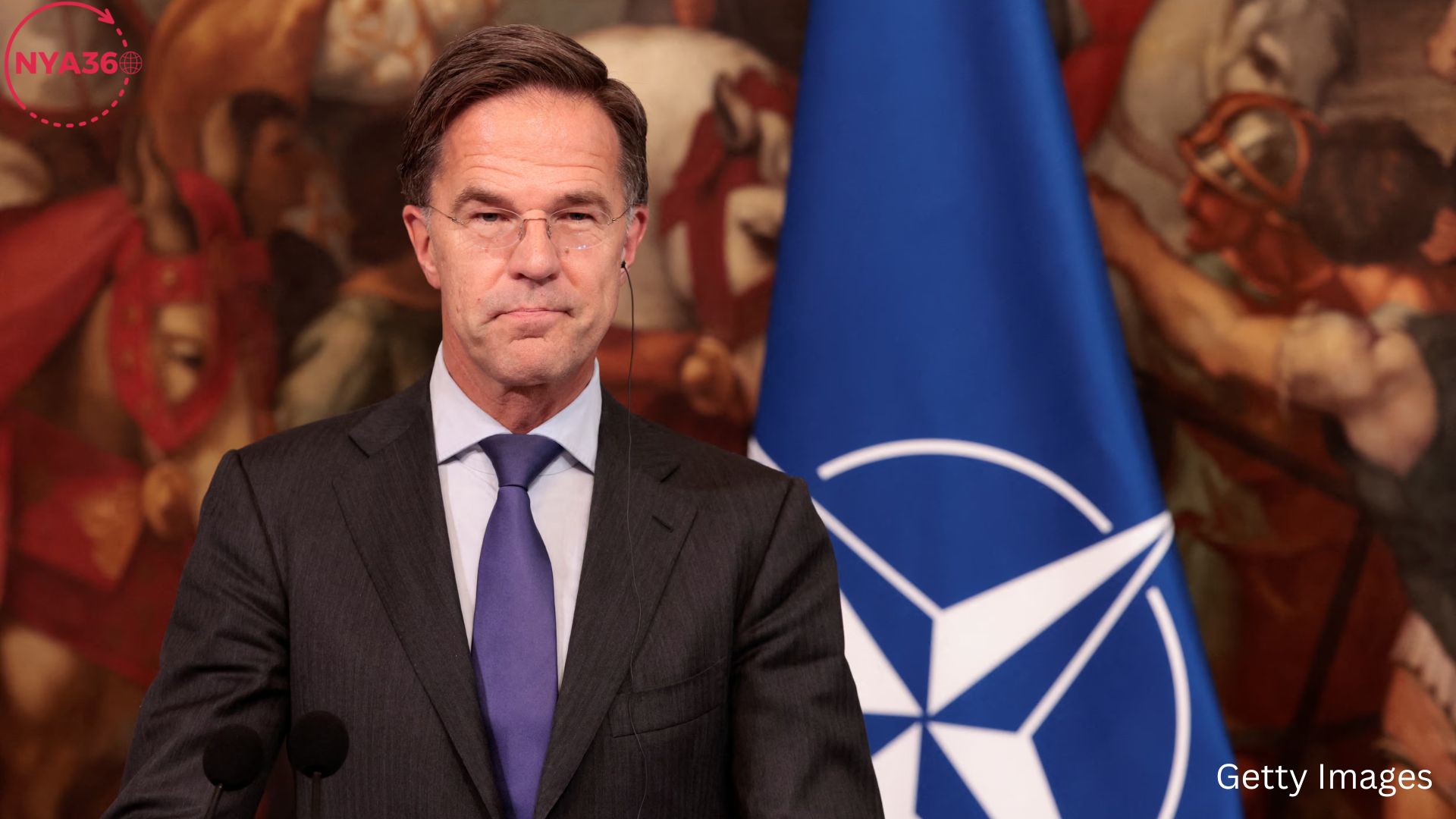In a swiftly changing global landscape, NATO’s response to continuing crises, especially the Ukraine crisis, has become a primary concern. Recent remarks by NATO Secretary General Rutte and U.S. Senator Marco Rubio have sparked new conversations over NATO’s future trajectory, the United States’ role, and possible resolutions for the Ukraine conflict. Rutte underscored the significance of uniting NATO members and collaborating with the re-elected U.S. President Donald Trump, whilst Senator Rubio proposed that conceding portions of Ukraine to Russia may be an essential compromise to conclude the conflict. These perspectives illuminate the tension and intricacy inherent in NATO’s contemporary strategies and underscore substantial divides among Western leaders over the optimal course of action.
Rutte’s Assurance in Collaborating with President Trump: A Prospective Advancement for NATO?
Mark Rutte’s recent remarks demonstrate a pragmatic leadership style within NATO, emphasizing maintaining the alliance’s strength and unity in light of increasing doubt on U.S. commitment under President Trump. Following a re-election victory, Trump has articulated ambivalence towards NATO, scrutinizing its relevance and the financial commitments of member nations. Trump’s critiques have encompassed the inadequacy of defense expenditures among European allies and the relevance of NATO’s mission to U.S. strategic goals, particularly in light of emerging multipolar threats that divert American attention.
In light of these uncertainties, Rutte’s confidence regarding collaboration with Trump indicates a revitalized emphasis on harmonizing the alliance’s interests with those of the United States. He has utilized strategic rhetoric by referencing the “Russian threat” as a cohesive element among NATO allies, to bolster support for heightened defense expenditures throughout Europe. This strategy addresses enduring apprehensions among Eastern European member states, especially Poland and the Baltic republics, which saw Russia as an existential threat and have persistently championed a strong NATO presence.

Nevertheless, whereas Rutte’s assertions aim to convey assurance, they also suggest latent tensions. Numerous NATO leaders are apprehensive about Trump’s erratic foreign policy strategy, which has occasionally shifted towards isolationism. This unpredictability may undermine NATO’s coherence, since it could result in varying interpretations of NATO’s aims by member countries through their national security perspectives, thus jeopardizing the alliance’s unity.
Rubio’s Contentious Proposal: Partition as a Resolution to the Ukraine Conflict
Senator Marco Rubio’s viewpoint on addressing the Ukraine situation offers a markedly distinct strategy. Rubio has said that permitting Russia to retain authority over specific Ukrainian regions may constitute a pragmatic settlement to conclude the conflict. Rubio contends that in the absence of such a deal, Ukraine faces considerable devastation that might impede its economic and political progress for decades. This plan adopts a pragmatic, though problematic, perspective emerging in certain Western political circles, emphasizing conflict containment over prolonged military involvement.
Rubio’s stance acknowledges the logistical difficulties of maintaining a lengthy fight in Ukraine, where significant infrastructure destruction, economic hardships, and citizen dislocation have exerted tremendous strain on Ukrainian resources. Western nations have extended significant military and financial aid to Ukraine; yet, there is a rising apprehension regarding the sustainability of this support in the long run. Furthermore, as European countries contend with energy difficulties and economic downturns, some apprehensions that continued assistance for Ukraine may deplete resources required for local needs.

This approach is likely to encounter opposition from Ukrainian leadership and its populace. President Volodymyr Zelensky has consistently asserted that Ukraine will not relinquish any territory to Russia, underscoring the significance of national sovereignty. For numerous Ukrainians, conceding territory to Russia would not only be perceived as a betrayal but also as an enticement for additional aggression from Moscow. This sentiment is bolstered by historical complaints against Soviet-era policies and the recent annexation of Crimea in 2014.
The Wider Consequences of a Compromise Resolution
Rubio’s idea also prompts broader inquiries concerning international rules and the precedent that relinquishing land to an aggressor may set. Western allies, especially in Europe, are concerned that permitting Russia to annex portions of Ukraine could encourage other governments to adopt expansionist agendas without apprehension of substantial consequences. This development could jeopardize the post-World War II paradigm that prioritizes territorial integrity and national sovereignty.
Furthermore, several NATO countries, particularly in Eastern Europe, saw this plan as an existential danger. Countries such as Poland and the Baltic states fear that permitting Russia to maintain control over Ukrainian territory would encourage Moscow to seek additional territorial expansion, jeopardizing their security. NATO’s presence is essential for deterring Russian aggression in these countries, and any capitulation regarding Ukraine might undermine NATO’s commitment and result in a steady diminishment of its influence in Eastern Europe.
Rubio’s viewpoint, however contentious, reflects a current of strategic realism in U.S. policy discussions. Some contend that although the aspiration for a fully sovereign Ukraine is commendable, the constraints of limited resources and the overarching dangers of extended conflict necessitate a more adaptable strategy. Some argue that permitting Russia to maintain authority over Ukrainian territory could offer Moscow a “face-saving” resolution, thereby diminishing antagonism and facilitating fresh diplomatic engagement.

The Future Role of NATO: Harmonizing Deterrence and Diplomacy
NATO confronts the issue of preserving unity while accommodating the many perspectives of its member states within a complicated geopolitical landscape. Rutte’s focus on heightened defense expenditure aligns with Eastern European partners, whereas several Western European countries prefer diplomatic measures to avert conflict. France and Germany have historically supported communication with Russia; nevertheless, the current conflict in Ukraine has necessitated a reassessment of their stances.
Trump’s resurgence as the president exacerbates this equilibrium. His administration may compel NATO to emphasize fiscal efficiency and enhanced autonomy for European nations, thus diminishing direct U.S. engagement in European security issues. This transition would necessitate European nations to augment their defense expenditures and assume a more significant position within NATO, potentially transforming the alliance into a more Europe-centric entity. This shift would be arduous, as European defense capabilities continue to depend on U.S. military resources, especially in intelligence and logistics.
NATO concurrently encounters internal pressures to exhibit its capability to deter Russian aggression without resorting to a comprehensive confrontation. This intricate equilibrium necessitates a comprehensive strategy, integrating military readiness with diplomatic efforts to establish a permanent peace framework in Ukraine. The alliance should contemplate comprehensive security assurances for Eastern European countries, affirming NATO’s dedication while also investigating methods for war de-escalation with Russia.

A Complicated Trajectory Ahead for NATO, Ukraine, and U.S.-Russia Relations
The remarks from Rutte and Rubio underscore the arduous journey confronting NATO and the United States in addressing the Ukraine problem. Rutte’s assurance in collaborating with President Trump signifies an attempt to maintain NATO’s unity amid erratic leadership, whereas Rubio’s suggestion highlights the challenging compromises involved in addressing enduring disputes. Both viewpoints illustrate the intricate and frequently contradictory goals that influence Western reactions to global security issues.
NATO must evaluate the strategic significance of upholding Ukraine’s sovereignty about the pragmatic aspects of maintaining an extended struggle. The alliance’s forthcoming decisions will have enduring consequences for both Ukraine and the global security framework, as well as the tenets of international law.
NATO’s strategy must be meticulously adjusted to alleviate member states’ anxieties, align partner expectations, and sustain stability in a progressively multipolar world, whether via enhanced deterrence, diplomatic discussions, or a hybrid of both approaches. Ongoing conversations render the future of NATO, U.S.-Russia ties, and the overarching global order uncertain, with heightened stakes for both regional and international stability.
Follow us on social media: Instagram Threads & Twitter X @nya360_ YouTube & Facebook @nya360.





